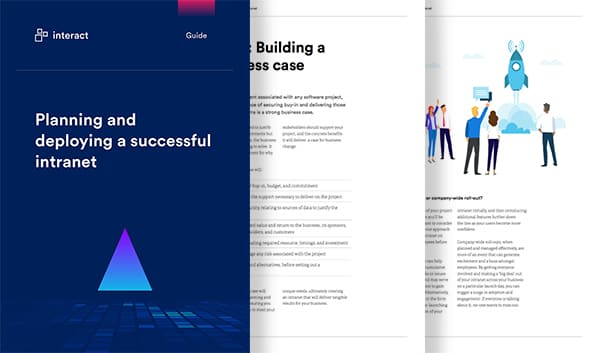Collaborative working: Is a social intranet the answer?
Are repetitive questions, incorrect information or the burial of company knowledge inhibiting your business productivity or ability to facilitate collaborative working?
Organizations host a tremendous amount of information and knowledge, particularly amongst high-skill knowledge workers such as managers or professionals. However, traditional tools for interaction and productivity, such as email, don’t make this knowledge and expertise easily accessible. Questions are answered in silo-ed emails between individuals; colleagues are approached and re-approached repetitively to answer the same question; others are forced to approach several people in order to find the right answer or information they’re looking for.
The result? Employees face stacks of internal emails, a lack of clarity, the potential for incorrect or misleading information and a huge drain on their productivity or ability to do their actual job. In its report, The Social Economy: Unlocking value and productivity through social technologies, McKinsey Global Institute found that the average knowledge worker spent 28% of the working week reading and answering email, with a further 19% of the week put to searching and gathering information.
Collaborative working: a social solution
The growth of social technologies in the workplace, designed to facilitate collaborative working, may present a solution to the productivity puzzle. By reducing dependency on email and placing key questions and information in a centralized, accessible location, organizations can empower employees with the information and time they need to innovate and perform their core roles. This video demonstrates the frustration facing many organizations – and how a social intranet could provide a powerful solution:
Implementing a social intranet not only reduced the volume of questions Thomas faced throughout his working day, freeing up time to enable him to innovate and pursue his core role, but also reduced his levels of frustration and therefore improved his engagement and workplace satisfaction.
In this way, an intranet can answer each of the key factors for employee engagement, as identified by Gallup in its State of the Global Workplace report:
- Availability of resources to perform well
- Freedom from obstacles to success at work
- The materials and equipment to do their job right
- At work, the opinions of employees seem to count
- The mission or purpose of the company makes employees feel their job is important
A social intranet is relevant to modern-day business as it hosts the resources and information employees require to do their job well; provides a valuable platform to communicate the company mission, purpose and on-going performance; enables employees to provide feedback and voice opinions in a way that will be heard by management; and removes the obstacle of hidden company knowledge and expertise created by email silos.
Hosting answers within the company intranet not only made company expertise searchable, but ensured a single definitive version of the truth for Emily – removing the risk of duplication of effort and incorrect information, which could lead to costly mistakes. An intranet also provides a valuable solution for the growth of globalization, enabling valuable information and resources to be accessed regardless of location or timezone.
A social intranet with tools such as discussion forums, blogs or teams facilitates true collaboration, capturing knowledge and expertise for future reference – even if the original individuals are unavailable or go on to leave the organization. With effective intranet intelligence, relevant information and answers can be pushed to users: for example, when asking a question, users should be presented with ‘best bet’ options or relevant experts they can approach for answers, with an Enterprise Search function to bring together all collateral from across an organization’s online storage and different applications.
Facing the frustrations of repetitive questions, silo-ed information or drowning in internal emails? Why not consider a free trial of Interact’s intelligent intranet platform and discover what a collaborative, social intranet could do for your business productivity?
